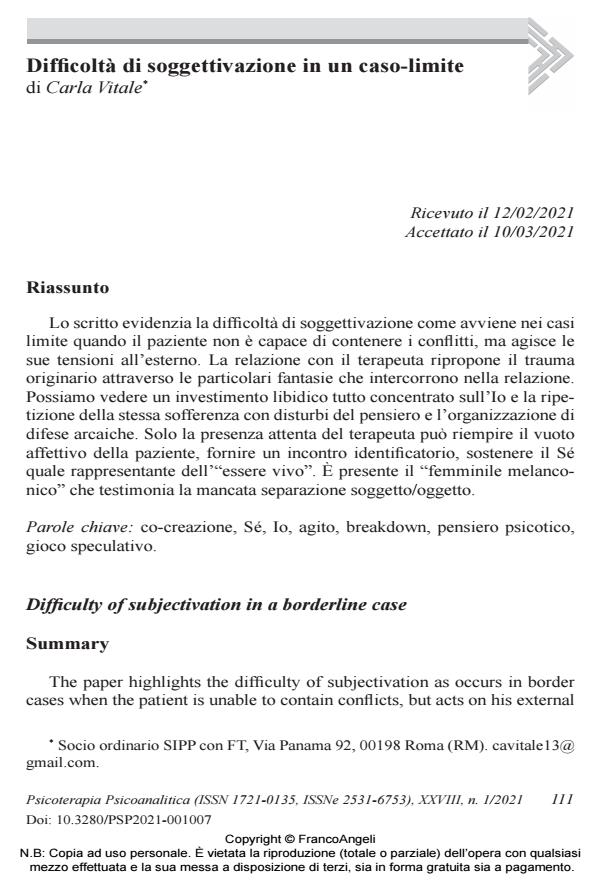Difficulty of subjectivation in a borderline case
Journal title PSICOTERAPIA PSICOANALITICA
Author/s Carla Vitale
Publishing Year 2021 Issue 2021/1
Language Italian Pages 13 P. 111-123 File size 191 KB
DOI 10.3280/PSP2021-001007
DOI is like a bar code for intellectual property: to have more infomation
click here
Below, you can see the article first page
If you want to buy this article in PDF format, you can do it, following the instructions to buy download credits

FrancoAngeli is member of Publishers International Linking Association, Inc (PILA), a not-for-profit association which run the CrossRef service enabling links to and from online scholarly content.
The paper highlights the difficulty of subjectivation as occurs in border cases when the patient is unable to contain conflicts, but acts on his external tensions. The relationship with the therapist re-proposes the original trauma through the particular fantasies that exist in the relationship. We can see a libidinal investment entirely focused on the ego and the repetition of the same suffering with thought disorders and the organization of archaic defenses. Only the attentive presence of the therapist can fill the patient’s emotional void, provide an identifying encounter, support the Self as the representative of "being alive". There is the "melancholic feminine" which testifies to the lack of separation of subject/object.
Keywords: co-creation, Self, Ego, acting-out, breakdown, psychotic thinking, speculative game.
Carla Vitale, Difficoltà di soggettivazione in un caso-limite in "PSICOTERAPIA PSICOANALITICA" 1/2021, pp 111-123, DOI: 10.3280/PSP2021-001007